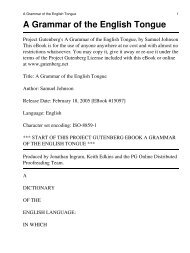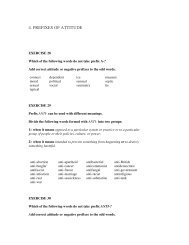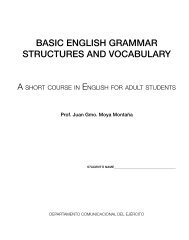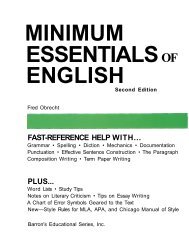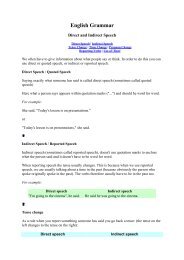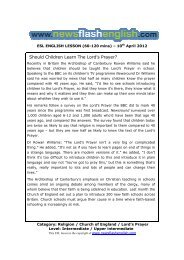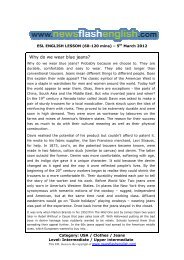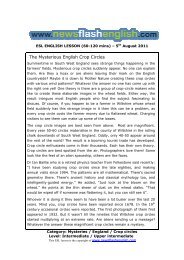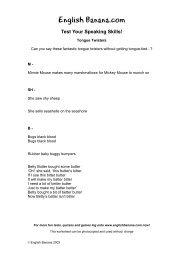English Grammar in Use
English Grammar in Use
English Grammar in Use
You also want an ePaper? Increase the reach of your titles
YUMPU automatically turns print PDFs into web optimized ePapers that Google loves.
Past perfect (I had done)at 10.30 at 11.00Bye!Hello!Sarah went to a party last week. Paul went to theparty too, but they didn’t see each other. Paul left theparty at 10.30 and Sarah arrived at 11 o’clock. So:When Sarah arrived at the party, Paul wasn’t there.He had gone home.Had gone is the past perfect (simple):I/we/they/youhe/she/itgone(= I’d etc.)had seen(= he’d etc.)f<strong>in</strong>ished etc.PAULSARAHThe past perfect simple is had + past participle (gone/seen/f<strong>in</strong>ished etc). For a list of irregularverbs, see page 12.Sometimes we talk about someth<strong>in</strong>g that happened <strong>in</strong> the past:Sarah arrived at the party.This is the start<strong>in</strong>g po<strong>in</strong>t of the story. Then, if we want to talk about th<strong>in</strong>gs that happenedbefore this time, we use the past perfect (had …):When Sarah arrived at the party, Paul had already gone home.Compare the present perfect (have seen etc.) and the past perfect (had seen etc.):Present perfectPast perfecthave seenhad seenpastnowpastnowWho is that woman? I’ve never seenher before.We aren’t hungry. We’ve just had lunch.The house is dirty. They haven’t cleanedit for weeks.I didn’t know who she was. I’d neverseen her before. (= before that time)We weren’t hungry. We’d just had lunch.The house was dirty. They hadn’tcleaned it for weeks.5




